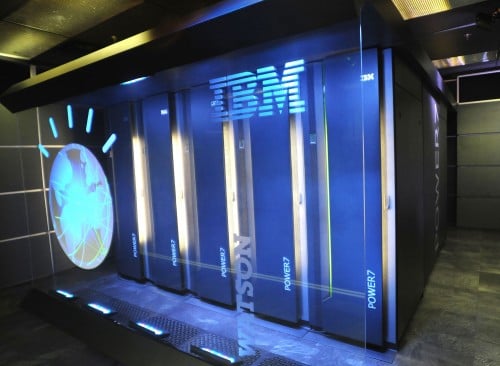If you’ve ever worried about having your job replaced by a machine, I’ve got some distressing news for you. IBM, a US tech and consulting firm, has produced a powerful artificial intelligence system as their latest creation. Known for their innovations in the world of technology, IBM has already invented a slew of modern conveniences, including the ATM, hard disk drive, and Universal Product Code (UPC).
Their most recent development, an AI supercomputer nicknamed Watson, is capable of replicating a high-functioning human’s ability to understand data and provide answers to questions. The machine is allegedly able to access 90 servers with a combined data store of over 200 millions pages worth of content. While similar in concept to a search engine like Google or Yahoo!, the process goes much further here. Watson can locate a collection of documents, just like in an Internet search, but is then able to search for a singular, concrete point of data. When it searches for information, it processes content against six million different logic tests, and is ultimately able to spit out something concise.
According to spokespeople at IBM, the goal of this project was to “have computers start to interact in natural human terms across a range of applications and processes,” which would mean “understanding the questions humans ask and providing answers that humans can understand and justify.”
As a test of the computer’s abilities, Watson was featured as a contestant on the popular game show Jeopardy!. Taking place in 2011, the competition placed the supercomputer against two of the show’s highest-scoring players. Researches sought out Jeopardy! as a challenge, mostly due to the game’s intense focus on hints and word associations. As you may know from experience, the show forces contestants to rely on human cognitive abilities that discern subtle cues like puns, rhymes, double entendre, and inferred meaning. While this type of cognition was previously seen as beyond the capabilities of computers, Watson consistently outscored the human competition, ultimately coming in first place.
Moving forward, the success of a project like IBM’s Watson should be viewed with cautious enthusiasm. Obviously this is the beginning of something huge, a series of breakthroughs in the way people interact with machines. Yet, it’s always important to remember the value of human work and cognition. They now have Watson working to address challenges in the financial and health care sectors, but the possibilities seem endless.


